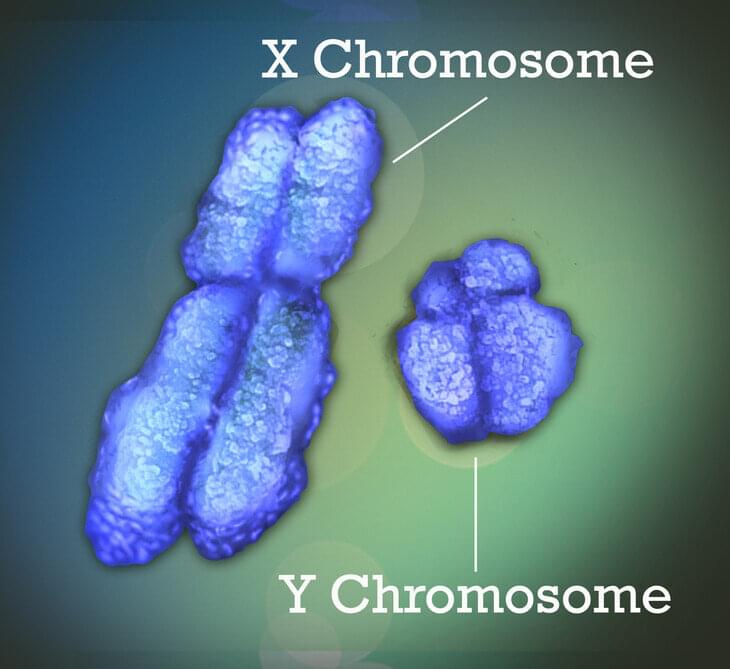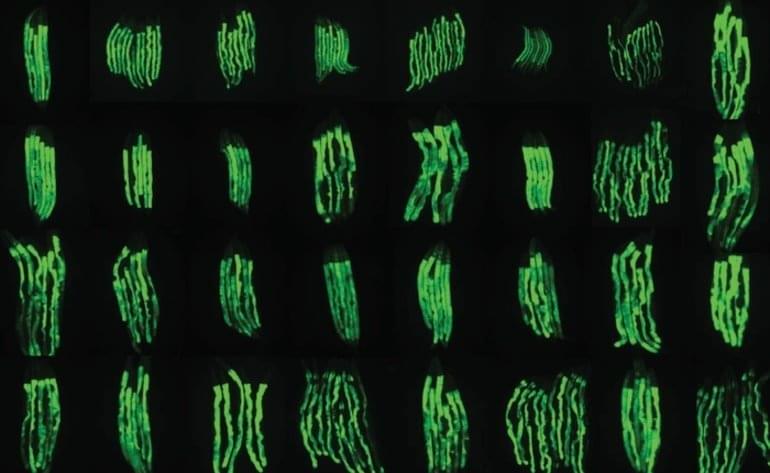Part of a solution.
Orca, the world’s largest direct air carbon capture and storage plant, has started operating in Iceland. It is run by Swiss company Climeworks.

The keyhole imaging technique, developed by researchers at Stanford University’s Computational Imaging Lab, is so named because all that’s needed to see what’s inside a closed room is a tiny hole (such as a keyhole or a peephole) large enough to shine a laser beam through, creating a single dot of light on a wall inside.
If you’re worried about privacy, it might be time to cover up your front door’s peephole.

Hwang and colleagues lay out their platform, which could one day be integrated not only into dental implants but other technologies, such as joint replacements, as well.
More than 3 million people in America have dental implants, used to replace a tooth lost to decay, gum disease, or injury. Implants represent a leap of progress over dentures or bridges, fitting much more securely and designed to last 20 years or more.
But often implants fall short of that expectation, instead needing replacement in five to 10 years due to local inflammation or gum disease, necessitating a repeat of a costly and invasive procedure for patients.
“We wanted to address this issue, and so we came up with an innovative new implant,” says Geelsu Hwang, an assistant professor in the University of Pennsylvania School of Dental Medicine, who has a background in engineering that he brings to his research on oral health issues.

What’s exciting about our findings is that we have identified a molecular pathway that is activated in normal acute wounds in humans, and altered in diabetic wounds in mice,” said Ghaidaa Kashgari, Ph.D., a postdoctoral researcher in the UCI School of Medicine Department of Medicine. “This finding strongly indicates clinical relevance and may improve our understanding of wound healing biology and could lead to new therapies.
A University of California, Irvine-led study identifies a new molecular pathway that promotes the healing of wounds in the skin. Titled “GRHL3 activates FSCN1 to relax cell-cell adhesions between migrating keratinocytes during wound reepithelialization,” the study was published today in JCI Insight.
The molecular pathway identified is controlled by an evolutionary conserved gene called a Grainyhead like 3 (GRHL3), which is a gene required for mammalian development. Without this gene, several abnormalities may occur, including spina bifida, defective epidermal barrier, defective eyelid closure and soft-tissue syndactyly, a condition in which children are born with fused or webbed fingers.
The study reveals how during wound healing, GRHL3 works to activate a protein coding gene called Fascin Actin-Bundling Protein 1 (Fscn1) to loosen the adhesion between wounded skin cells so they can migrate efficiently to close the wound. Researchers also found that alterations in this process may result in chronic, non-healing wounds, such as diabetic ulcers that affect millions of patients every year.

Many human diseases can differ between males and females in their prevalence, manifestation, severity or age of onset. Examples include Lupus, where more than 80% of patients are females; Alzheimer’s disease, where females have higher incidence and tend to suffer quicker cognitive decline; and COVID-19 infections that are frequently more severe in males.
These sex differences may have a genetic basis that is attributable to the sex chromosomes. The X chromosome—one of the two sex chromosomes—is known to play an important role in human development and disease. New research led by Penn State College of Medicine reveals for the first time that sex-biased diseases can be attributable to genes that escape X chromosome inactivation (XCI), a process that ensures that females do not overexpress genes on their X-chromosomes.
The team developed a genetic tool that can identify these XCI escape genes, and it may also help in determining whether a female will develop a sex-biased disease and if the disease will become progressively worse over time. The tool may even be useful in understanding the sex differences in immune responses to COVID-19, as the disease is thought to produce more severe symptoms and higher mortality in men than in women.
In this video Dr. Katcher reveals his thought on the future of aging if E5 is fulfils on its promise.
Dr Katcher’s book is on Amazon.
The Illusion of Knowledge: The paradigm shift in aging research that shows the way to human rejuvenation.
https://amzn.to/3jJ5deD
Dr Harold Katcher is one of the discovers of the human breast cancer gene BRCA1, and has thousands of citations in the scientific literature with publications ranging from protein structure to bacteriology, bioinformatics and biochemistry. He was the Academic Director for Natural Sciences of the University of Maryland Global Campus and is now the Chief Scientific Officer at Yuvan Research Inc, a company working on the development of rejuvenation treatments.
Dr Katcher’s new book, the Illusion of Knowledge, the paradigm shift in aging research that shows the way to human rejuvenation will be launched on 4th September 2021 and is already available in electronic form. The book launch will take place at The Book Passage in the Ferry Building in San Francisco at 3:00 pm Pacific Time.
************************************************************
Health claims Disclosure: Information provided on this video is not a substitute for direct, individual medical treatment or advice. Please consult with your doctor first. Products or services mentioned in this video are not a recommendation.
Audio Copyright Disclaimer:
Japan says it has scrambled fighter aircraft to intercept Chinese military drones and accompanying surveillance aircraft on three consecutive days this week as its defense forces took part in a series of readiness exercises with regional allies.


Summary: A new study on aging reveals a surprising discovery about the connection between protein shape and mitochondrial health.
Source: Buck Institute.
Every cell in the body goes through thousands of chemical reactions each day, and each reaction involves tiny protein molecules folded into precise shapes to perform their functions. Misfolded proteins underlie some of the most common and devastating diseases of aging, like Alzheimer’s and Parkinson’s. A major focus of aging research is discovering ways to maintain protein shape and prevent misfolded proteins from wreaking havoc on cellular function.

Circa 2019
LONDON — A laboratory in Switzerland has found a way of using a laser to change and regulate the polarization, wavelength and intensity of light in “excitons” in 2D materials, creating the potential for a new generation of transistors with less energy loss and heat dissipation, opening up the potential for low-power quantum computing.
Excitons are created when an electron absorbs light and moves into a higher energy level, or “energy band” as it is called in solid quantum physics. This excited electron leaves behind an “electron hole” in its previous energy band. And because the electron has a negative charge and the hole a positive charge, the two are bound together by an electrostatic force called a Coulomb force. It’s this electron-electron hole pair that is referred to as an exciton.
Scientists from EPFL’s Laboratory of Nanoscale Electronics and Structures (LANES) had already developed a method to control exciton flows at room temperature last year. In the latest development, they have discovered new properties of these quasiparticles that can lead to more energy-efficient electronic devices and have found a way to control some of the properties and change the polarization of the light they generate. The scientists’ discovery forms part of a relatively new field of research called valleytronics and has just been published in Nature Photonics.